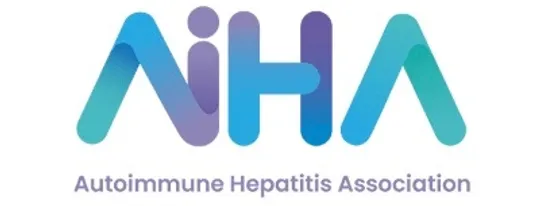Mental Health
Learn more about how anxiety and depression may impact autoimmune hepatitis (AIH) patients and what you can do to help alleviate symptoms.
Anxiety, Depression, & AIH
Feeling depressed or anxious? You’re not alone. Mental illness and autoimmune hepatitis (AIH) can go hand in hand. In fact, one European study showed that AIH patients have five times the risk of major depressive syndrome and four times the risk of symptoms of severe anxiety compared to the general population.
We highly encourage patients who have any concerns with their mental health to make an appointment with their primary care provider or a mental health professional. Unsure how to start the conversation? Consider printing off the Patient Health Questionnaire (PHQ-2) and the General Anxiety Disorder Questionnaire (GAD-7) and bringing them to your doctor’s appointment.
These two screening tools can help identify patients at risk of depression and anxiety. They can’t be used to diagnose the conditions but can serve as a helpful tool for you and your doctor. These questionnaires are not perfect and may miss identifying patients who have clinically significant depression or anxiety. That’s why a trained professional should administer the survey and interpret the results.
Webinars on Mental Health
Coping with a Rare Disease: A Focus on Mental Health
Anne Mary Montero, Ph.D., from Indiana University School of Medicine, provides some practical tips for handling the stress, fatigue, and poor sleep that often accompany a rare disease like AIH.
Managing Mental Health with AIH
Anne Mary Montero, Ph.D., a clinical psychologist at Indiana University School of Medicine, speaks about mental health, including anxiety, depression and fatigue, which are common symptoms of autoimmune hepatitis.
Anxiety and Depression in Autoimmune Hepatitis
Emily Holmes, M.D., a psychiatrist at Indiana University, discusses the significance of depression and anxiety among patients with autoimmune hepatitis.
Mental Health Resources
If you have any thoughts of harming yourself or others, please seek prompt emergency care through any emergency room or by calling 911 in the United States.
The 988 Suicide & Crisis Lifeline is available 24/7 to provide free and confidential support for people in distress. Call 988 in the US.
If you’re not in crisis but are seeking a therapist, Psychology Today has a provider directory to easily find a mental health professional in your area.
Additional therapy resources, self-guided apps, and tools, which have varying costs:
- Talkspace: therapy via live video, text or phone
- MD Live: 24/7 health care (including mental health) by phone or video
- NAMI, the National Alliance on Mental Health: support, education, and resources
- This Way Up: online programs for managing stress, anxiety, and low mood
- American Academy of Pediatrics: mental health resources for families covering a variety of mental health concerns
- National Institute of Mental Health: fact sheets on a variety of topics, as well as a printable craft and coloring and activity book.
- Calm: app to manage stress and anxiety, improve sleep and be more present
- Headspace: app that provides mindfulness tools including meditations and more
- PBS Kids: age-appropriate resources for managing emotions, building social skills, and more in children.
- MoodTools: app to help lift your mood
- Moodfit: app that provides tools and insights for mental health
- Mindful: content, training and courses on mindfulness
- Aura: app for sleep and wellbeing
- Breathe2Relax app
AIHA Support Groups
The AIHA’s support groups provide a much-needed place for people with AIH to connect and find support. At support group meetings, patients learn and gather strength from one other and occasionally hear from experts. Each support group participant has the opportunity to share their journey with the disease, ask questions, and support other patients. Learn more.
The AIHA Mentorship Program
The AIHA Mentorship Program connects patients with other patients and caregivers with other caregivers in order to provide one-on-one support. The program, open to all patients ages 5+ and caregivers, is a way for participants to share experiences, learn from one another, and provide emotional support. Learn more.
